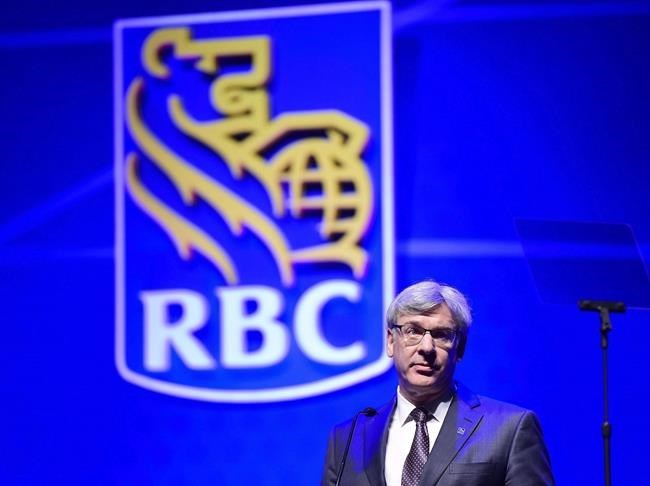TORONTO — RBC chief executive Dave McKay defended the bank's climate plan at its annual shareholder meeting Wednesday as numerous attendees criticized it for not doing enough.
Speaking at the event held this year in Saskatoon, McKay emphasized the importance of an orderly net-zero transition since instability in food, energy or security will throw off efforts to rein in climate change.
"Where any of those, one or more of those elements, aren't present, then the focus on this critical climate journey is put aside."
He also said there needs to be a wider shouldering of the burden of change.
“We are putting all the pressure in society on the manufacturing supply side to change and make it an easy journey for us as citizens, and so far, for the most part, we've appeared unwilling to change our consumption behaviours or mobility behaviours to lower our footprint.”
His comments come as the bank faces a barrage of criticism from those pushing for shareholder resolutions, especially on stronger and faster climate action but also racial equity, and executive pay, and Indigenous rights.
Grand chief Stewart Phillip, president of the Union of British Columbia Indian Chiefs, presented a resolution pushing the bank to implement free, prior and informed consent (FPIC) as he raised concerns about the bank's involvement in the Coastal GasLink pipeline.
"Failures to adequately incorporate FPIC is a material risk that has already caused reputational harm, as well as delays, cost increases and conflict on the land," he said.
McKay said the bank can't be held responsible for the day-to-day operating issues of the pipeline construction, while consent issues are difficult questions that need collaboration to resolve.
"Free prior informed consent is a very complex issue that has to be led by Indigenous communities, governments, and those businesses that own and operate the assets and the projects in question."
Several attendees speaking for resolutions, including Wet’suwet’en hereditary chief Na’Moks, also criticized the bank for relegating them to an overflow room at the meeting where they were unable to address bank executives in person.
“(I’ve) never been so insulted in my life,” said Na'Moks to a crowd gathered outside the hotel.
Some hundred or so demonstrators had gathered before the meeting. Many wore ribbon skirts and some held signs calling RBC the “Oil Bank of Canada” and called for the bank to “stop funding eco-cide.”
Of the eight shareholder proposals that went to a vote, one pushing for the bank to undertake a racial equity audit secured the highest support at about 44 per cent, while the resolution on Indigenous consent garnered 28 per cent support.
A resolution pushing RBC to set absolution emission reduction targets got 22 per cent support, while one trying to get the bank to stop funding fossil fuel expansion secured about 11 per cent.
McKay thanked those who had spoken at the meeting, saying that he thinks they agree on the destination and that they disagree only on how to get there.
— With files from Kelly Geraldine Malone in Saskatoon.
This report by The Canadian Press was first published April 4, 2023.
Companies in this story: (TSX:RY)
Ian Bickis, The Canadian Press



